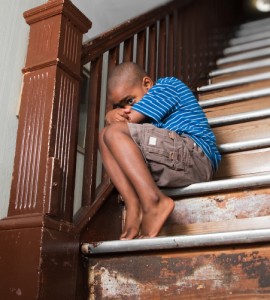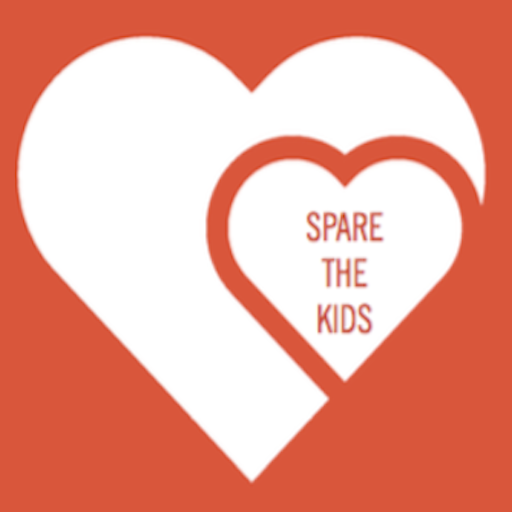By Dr. Stacey Patton
Creator of Spare The Kids
There’s been much debate over two Harvard experts’ controversial recommendation that some say would help manage the nation’s childhood obesity crisis. But I think it’s yet another means for an already overburdened foster care system to feed its inertia and further extend its bureaucratic reach to the lives of poor, black, and brown people who are disproportionately the victims of economic inequalities.

Blog
Foster Care For Obese Kids?
Is Eye-Rolling A Universal Diss?
By Dr. Stacey Patton
Creator of Spare The Kids
All the pushing, shoving and fighting for a spot on crowded New York City subways makes riding those iron horses a rough and tumble experience. One need only peruse youtubevideos of savage subway beatdowns to get a view of the base and brutal level of humanity I’m talking about. And between the hours of 3 and 4 in the afternoon, teenagers are oftentimes the main culprits stirring up fights.
Black Mother Kills Son For Breaking TV
By Dr. Stacey Patton
Creator of SpareTheKids.com
I am irate and heartbroken because yet another black child was robbed of the chance to grow up by his own mother.
Are Spankings Harmless or Akin to Assault?
By Jackie Jones
BlackAmericaWeb.com
You want to talk about a public health crisis? Consider this:
· Every four seconds, a black public school student is suspended; 6,916 are suspended each day.
· Every 57 seconds a black school student is corporally punished; 442 are corporally punished each day.
· Every three minutes, a black child is abused or neglected; 434 are abused or neglected each day.
· Every 14 minutes, a black child is arrested for violent crimes; 104 are arrested each day.
· Each day, one black child is killed by abuse or neglect.
· Every two days, a black child or teen commits suicide.
· Every day, four black children or teens are killed by firearms.
A Plea To Let N.J. Adoptees Find Themselves
By Stacey Patton
I am case number KC 114343 in the New Jersey foster care system, and like thousands of other adoptees — some women like me, some black like me — I will not have a right to my birth certificate unless Gov. Chris Christie signs the Adoptees Birthright Bill (A1406/S799) passed this month by the state Assembly (and the Senate in March).
Jersey Passes “Civil Rights” Bill for Adoptees
By Dr. Stacey Patton
Creator of Spare The Kids
On Monday, the New Jersey State Assembly approved a measure that will allow adults who were adopted as infants to get a copy of their birth certificate showing the names of their biological parents. After 31 years of fierce activism and legal battles, adoptees and advocates are calling this victory a significant development in a long civil rights battle to learn their identities. The full Assembly approved the bill A1406/S799 by a vote of 44 to 26, with two abstentions.
But the legal fight might not be over.
Gov. Chris Christie, who has an adopted sister, now has to sign the bill. If he does, New Jersey will become the seventh state to give adoptees a right to access their pasts. The bill’s advocates hope that the governor’s deeply personal connection to the issue will make him sympathetic and sign the measure. But the fact that Gov. Christie has given no indication of what he plans to do, and that he is a practicing Catholic, has raised some concern.
The two most vocal religious opponents of the legislation are the New Jersey Right to Life and New Jersey Catholic Conference. Both groups have claimed, without presenting no empirical evidence, these groups and other organizations have argued that pregnant women faced with the prospect of losing their anonymity would be inclined to choose abortion over adoption.
“We hope the governor will veto the bill,” Marie Tasy, executive director for New Jersey Right to Life, told The Star Ledger. “This bill is not only poorly drafted, it contains multiple flaws the consequences of which, in human terms, could be devastating to many and ultimately harm the institution of adoption.”
But Assemblyman Vincent Prieto (D-Hudson), who sponsored the legislation, said many opponents mistakenly believe birth mothers were guaranteed privacy. He said that birth mothers signed papers years before relinquishing their babies “mainly to protect the adopted child and the adoptive parents.”
The bill has loopholes, one which would allow birth parents who gave a child up for adoption before the law’s passage to maintain their anonymity. Birth parents have one year after the bill’s enactment to send a notarized letter requesting that the state registrar redact their names and addresses from the original birth certificate. Going forward, those who surrender a baby after the law is enacted would have an opportunity to submit a document stating their preference not to be contacted.
As an adoptee, I applaud the State Assembly for granting adoptees the same equal rights as non-adopted persons – to know vital medical information, to know one’s origins and the circumstances surrounding their adoption. I grew up yearning to know the things that non-adopted persons taken for granted – where I came from, where my real parents were, who I looked like, whether or not I had siblings, and why I was given up. Such terrible questions deeply impact children at every developmental milestone and continue to impact their sense of themselves and emotional connections to others in adulthood.
Not only do I see this new bill as a basic civil right, but as a form of emotional justice that can offer a peace of mind and fill in the terrible void that comes with not knowing one’s self. Of course I don’t speak for all adoptees on this issue. There are plenty who will say that they have no desire to open up Pandora’s Box because of their love for their adoptive parents or because of fears of what they might find.
There are those who will continue to chant a mantra of speculative theories about what this bill might do, insisting that birthmothers were promised secrecy even though they weren’t. Certain religious groups and social conservatives will make predictions of increased abortions even though studies conducted in states that have passed the measure have shown no such trends and that in fact many biological parents are open to reunions with their children.
We in the civil rights community who know all too well that the denial of access to history for the sake of keeping secrets handicaps and hurts everybody.
Stop Telling Black Kids to Move Out the Way
By Dr. Stacey Patton
Creator of Spare The Kids
Unfortunately, the following scenario is an all-too familiar scene that gets played out daily in public spaces.
A good friend of mine was walking along a subway platform the other day when she saw a young black woman dragging her child by one arm. The child, who had to take three or four steps in proportion to one of his mother’s, had his head turned in the opposite direction. Not paying attention, he nearly bumped into my friend who had flattened herself against the wall to avoid a crash.
No Race Bias in Child Abuse Reporting
By Stacey Patton
Do African Americans really abuse their children more than whites and other groups? Or is there a thread of racial bias from the largely white social services workforce that reports abuse? Are white social workers more likely to suspect maltreatment among blacks?
From the Mouths of Babes
By Stacey Patton
Creator of SpareTheKids.com
“I think we can all agree that the worst kind of whoopin’, is the kind when we don’t know what we did,” says Zaire, an 8th grader at The Stadium School in East Baltimore, Maryland. It’s a Friday afternoon and she and about a dozen of her classmates are participating in a roundtable discussion on corporal punishment being held inside principal Ron Shelley’s office.
Breaking the Cycle
SPARE THE KIDS!
Changing the Culture of Physical Punishment in Black Communities
Focus
The goal of this workshop is to examine the ways in which corporal punishment is discussed and regarded in black families and communities. It is designed to address the deeply rooted cultural attachment to physical discipline as an appropriate and effective parenting tool. Spare the Kids incorporates some examples drawn from popular culture as well as African-American history, sociological studies, new media, social networking, psychological research and personal testimonies. This workshop will connect the current conversation and controversy about physical discipline to the historical roots of plantation violence and post-slavery dynamics. All participants will gain new perspectives on the topic and increase their cultural awareness and sensitivity and share best parenting practices that do not involve physical punishment.
 Audience
Audience
Social Workers
School Teachers
Guidance Counselors
Residential Counselors
Child Advocates
Parents
Foster Care Providers
Judges & Law Guardians
Law Enforcement Officials
Ideal Time Frame
2-3 Hours
Maximum size
50 Participants
* This workshop can be adapted to an hour-length speech with an audience Q&A for audiences larger (or smaller) than 50 participants.Love and violence do not co-exist.
- ‹ Previous
- 1
- …
- 3
- 4
- 5


Recent Comments